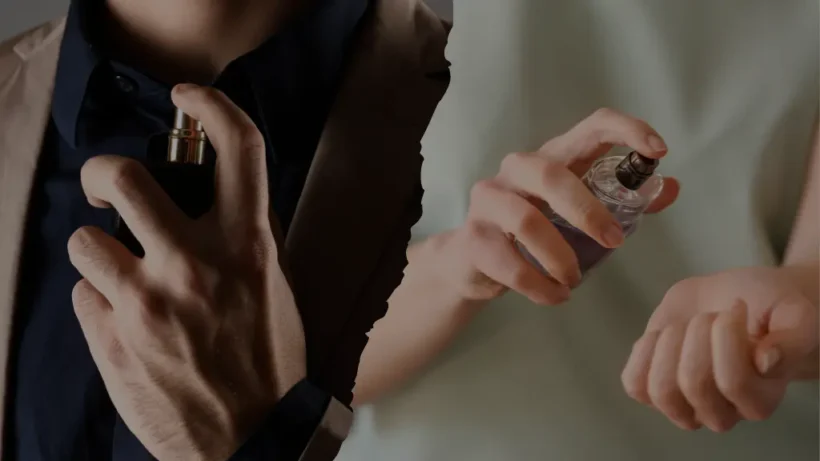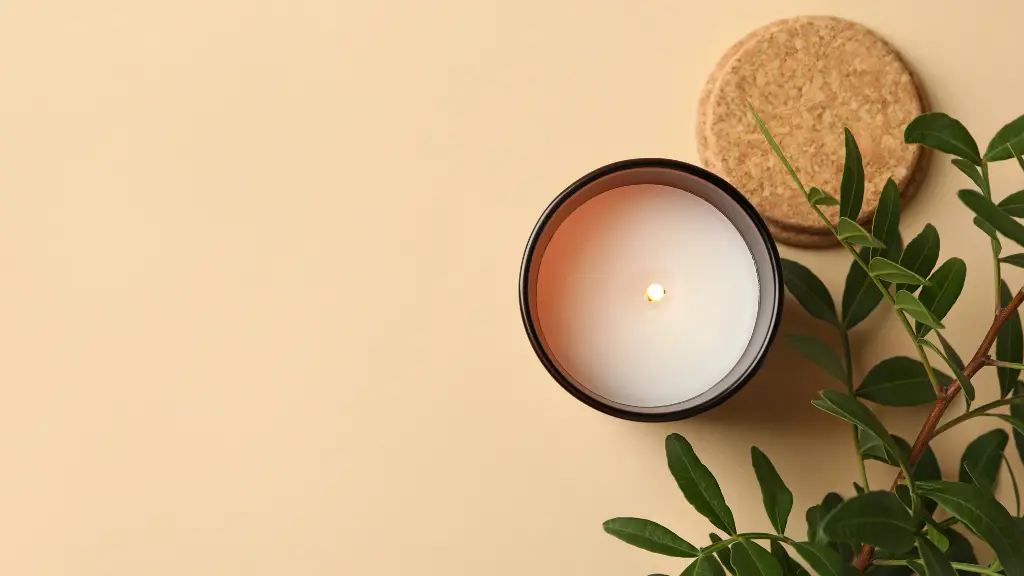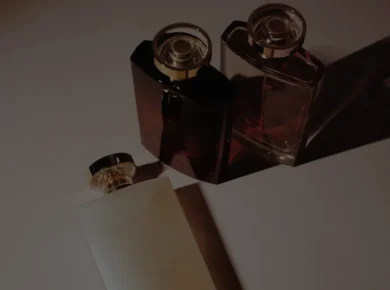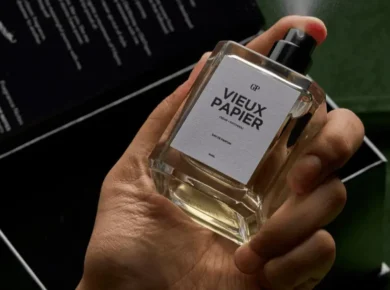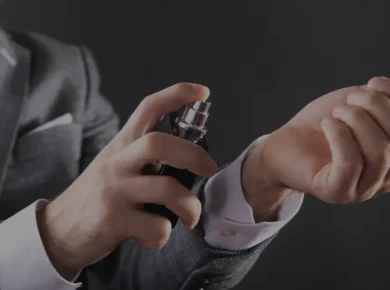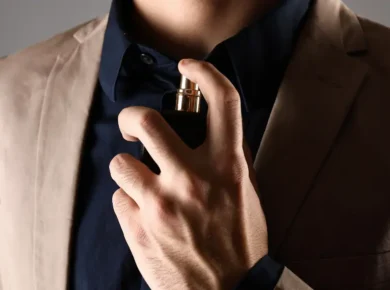I used to ask myself this all the time when I first started exploring perfumes—should I spray perfume on my clothes or directly on my skin?
If you’ve been Googling this like I did, you’ve probably seen all sorts of conflicting advice. Some people swear by spritzing on skin, while others insist that fabric is the way to go. Honestly, it can feel overwhelming to figure out what works best.
But here’s the truth: there’s no one-size-fits-all answer. Both methods have their perks (and quirks), and the “right way” totally depends on what you’re looking for. So, let’s break it down and figure out which approach suits you is it on skin or clothes?
How Perfume Works: A Quick Overview
Before we get into the nitty-gritty, let’s talk about why perfume behaves differently depending on where you spray it.
Perfume isn’t just a pretty smell in a bottle—it’s a work of art. It’s made up of three layers of notes that unfold over time, creating that magical experience we all love:
Perfume Composition:
Perfumes are carefully crafted using a blend of notes that unfold over time, creating a layered and dynamic smell experience. These notes are categorized into three main types:
- Top Notes: The light, initial smells that evaporate quickly, lasting about 15-30 minutes. Examples: citrus, herbs, light florals.
- Middle (Heart) Notes: The core of the fragrance, lasting 2-4 hours. These are richer smells like florals or spices.
- Base Notes: The deep, lasting foundation, lingering for 4-8 hours or more. Examples: woods, musk, vanilla, or amber.
Related Article: A Beginner’s Guide to Perfume and Fragrance Types (With Pictures)
Spraying Perfume on Skin
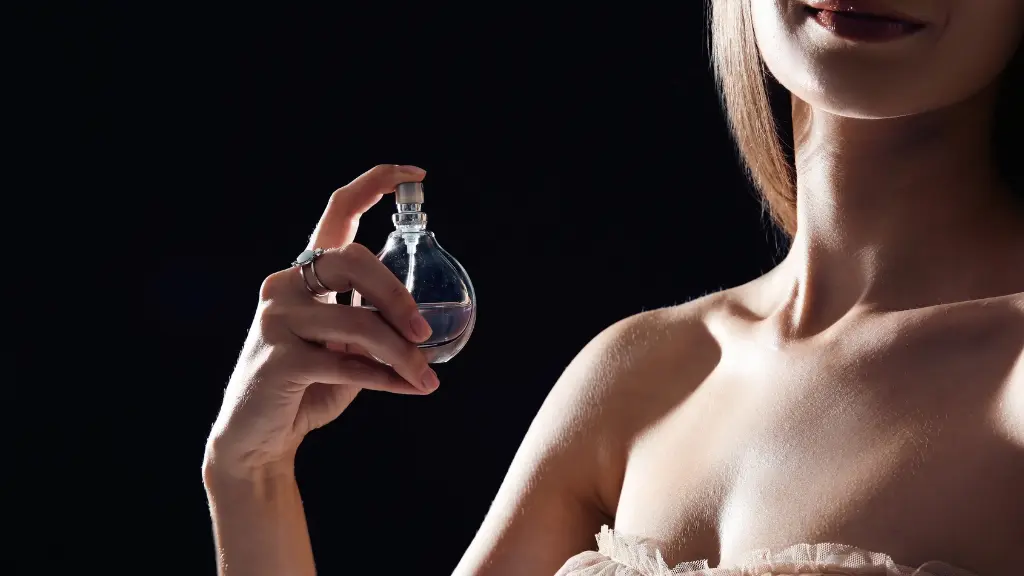
Spraying perfume on your skin has been the go-to method forever—and for good reason!
When you spritz your skin, your body heat acts like a perfume diffuser, warming up the scent and helping it evolve naturally. This is where skin chemistry comes into play—your natural oils interact with the fragrance, creating a unique blend that’s totally you. That’s why perfumes often smell slightly different on everyone, making it a personal and dynamic experience. However, it’s important to consider sensitivity and how your skin might react to certain fragrances.
Pros:
- Body Heat Enhances Smell Evolution: Skin emits heat, which helps the perfume gradually release its notes. This allows the smell to develop and change over time, offering a dynamic experience.
- Natural Diffusion: Perfume blends with your body’s natural oils, creating a personalized smell unique to you.
- Pulse Points Amplify Projection: Applying perfume to areas with prominent blood vessels (e.g., wrists, neck, behind ears) enhances diffusion.
Cons:
- Varies by Skin Type: People with dry skin may find that perfume evaporates more quickly, reducing longevity.
- Faster Evaporation: Because the skin is warm, perfume tends to evaporate faster than it would on your shirt.
- Irritation Risk: Some perfumes, especially those with high alcohol content, may cause irritation or allergies, particularly if you have sensitive skin.
Best Practices for Applying on Skin:
- Pulse Points: When applying perfume on the skin, focus on spraying directly onto your wrists, neck, and behind the ears.
- Don’t Rub: Avoid rubbing your wrists together after applying perfume, as this can disrupt the molecular structure and fade the top notes faster.
- Moisturize First: Moisturize First: Apply an unscented moisturizer before perfume to help it adhere better.
I don’t suggest applying perfume directly to your chest, as it can cause nose blindness. Over time, you may notice that you can’t even smell your cologne, even if you spray more than before.
Want to know the best ways to make your fragrance last longer? Check out our article for a detailed application!ck out our article for a detailed application!
Should You Spray Fragrance on Clothes?

Spraying perfume on clothes isn’t as common, but it’s a total game-changer for certain situations.
Fibers in clothing act like scent sponges—they hold onto fragrance much longer than skin does. If you’re someone who wants their perfume to last all day (and into the next), spraying on clothes might just be your new best friend.
Pros:
- Longer Lasting: Perfume tends to linger longer on clothes since they don’t produce heat or oils like skin does.
- Reduces Skin Reactions: Spraying on clothes eliminates the risk of skin irritation or allergies.
- Consistent Scent: The fragrance remains true to its original profile since it doesn’t interact with body chemistry.
Cons:
- Staining Risk: Delicate fabrics like silk or linen can stain from perfume oils, especially darker or more concentrated fragrances.
- Limited Scent Evolution: Without body heat, the scent won’t develop and change as dynamically as it would on skin.
- Lower Diffusion: Perfume on clothes doesn’t project as far as it does when applied to warm skin.
Keep in mind that spraying on fabrics could lead to a scent lingering even after a wash, especially with stronger formulations. This is something to consider if you frequently change fragrances or have delicate clothing items.
Best Practices for Applying on Clothes:
- Fabric Choice: Spray on sturdy fabrics like cotton, wool, or synthetic blends, which hold scent well.
- Keep a Distance: Hold the bottle 6-8 inches away to avoid concentrated stains.
- Avoid Delicates: Be cautious when applying your perfume to silk, satin, or other delicate fabrics to prevent damage.
Factors to Consider When Spraying Perfume on Clothes and Skin
When deciding where to apply your perfume, it’s important to remember that the scent can often last longer than the skin when sprayed on certain surfaces, like clothes. However, this can vary depending on the perfume.
For instance, applying perfume near your armpit area might seem logical for added freshness, but it’s not ideal. The mix of sweat and deodorant can interfere with the fragrance, altering its intended scent profile. Instead, focus on pulse points like your neck or wrists for a more balanced projection.
Stronger formulations like Eau de Parfum tend to cling to fabric more effectively, while lighter scents like Eau de Toilette may shine better on skin, where body heat helps them project and evolve dynamically.
Spraying Both Clothes and Skin for Better Performance
Combining both methods can maximize your perfume’s impact. By layering on both skin and clothes, you can achieve a balance of projection, sillage, and lasting impression.
- Layer Strategically: Apply a light mist to pulse points to help the scent project better, then add a few spritzes to your shirt to ensure it lasts throughout the day.
- Avoid Overpowering: Stick to a couple of sprays on each surface to keep the fragrance subtle and pleasant.
- Mind Stains: Test your perfume on a small, hidden area of clothing first to avoid unwanted stains or damage.
Is Spraying Fragrance on Clothes Better?
Both skin and clothing offer unique benefits when it comes to perfume application. The choice depends on personal preference: If you want a scent that evolves and projects, opt for fragrances applied directly to your skin. For lasting power and minimal skin interaction, spray on your clothes.
Experiment with both methods to find the perfect balance of longevity and an enhanced olfactory experience. If it doesn’t irritate your skin or you don’t have any allergies I suggest going both.
